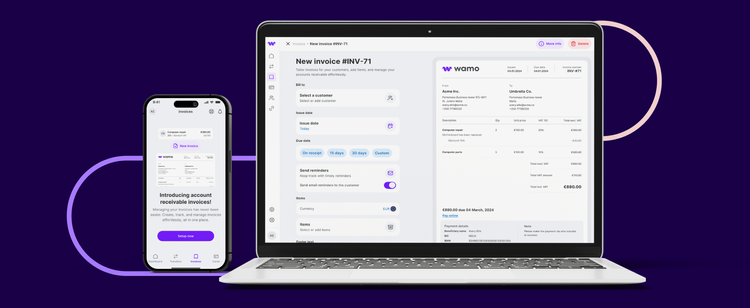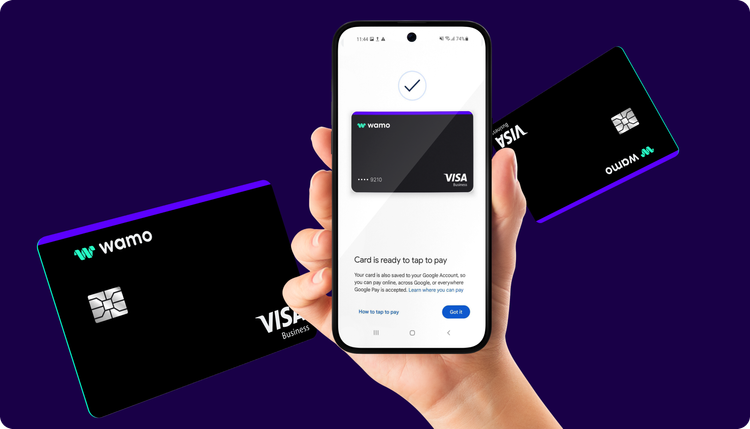Freelancing vs self-employment - these terms can be confusing especially when you’re just preparing to enter the ‘gig economy’ (working short term contracts) or planning on planning on building your own new business. This is because they both come with equal independence and responsibilities.
So, there's often this underlying question: is freelancing considered self-employment? Well, in reality, there are a lot of practical, theoretical and legal reasons to fully understand the "real" difference.
Once you’ve fully graped both types of woking life, it will be easier to lay out your future plans, be more precise about what you want and set stronger goals. So, let's first understand what ‘self-emplyed’ and ‘freelancer’ actually mean…
Are you a freelancer?
Typically, if you are a freelancer, you will be working on a contract with your clients on a project or contract basis. Freelancers often manage their own schedules, find their own contracts, find their own employment and work for their favourite brands and businesses. They are highly skilled in a specific field, such as writing, design, programming or consulting to name a few. Additionally, people who tend to define themselves as freelancers prefer working alone or teaming up with other freelancers.
They also enjoy a certain level of adaptability and independence in their schedule and get better control of their work and work-life balance. As a freelancer, you may work with different clients on various projects and typically work under short-term contracts that are not tied to a single employer.

Are you self-employed?
While freelancers are always self-employed, self-employed people are not necessarily freelancers. Confused? Well, don’t worry it will all become clear!
When you are self-employed, you own and operate your own business and you are not employed by someone else. It also means that you will be in charge of everything related to running and growing your business - which includes hiring staff, determining your product pricing, scheduling your own tasks and that of your employees and handling the cash flows.
Self-employed decide what they work on and who they work for, and their hours are more extended than freelancers. A self-employed individual is more likely to have employees and they sometimes even hire freelancers for help.
Self-Employment vs. Freelance - What are the other differences?
Responsibility: As a self-employed individual, you're responsible to deal with every aspect of your business, from marketing and sales to invoicing and tax returns. As a freelancer, you have less responsibility as you are dealing with a project-by-project basis for different clients.
Payments: Self-employed individuals can set only a specific price for their products and services and invoice clients for the same. Freelancers can be paid by the hour, per project or on a retainer basis - this depends on how they have set the terms of the contract.
Legal and tax considerations: Both self-employed and freelancers are classified as 'self-employed' by the HMRC. While they both register as self-employed with the government, freelancers tend to work under short-term contracts with each client - and so, their taxes and legal liabilities depend on the terms of each contract.
Workload: Self-employed people have unlimited authority over their workload, while freelancers may have limited control since they are in contract to work with a client under their requirements.
Goals: Of course, both professions have their own set of goals and targets, you could say that self-employed individuals have an eye on long-term growth and freelancers are more likely to hop from project to project.
The decision to become self-employed or work as a freelancer will depend on your individual career goals and preferences and also on your personality! If you're looking for complete control over your business and have a vision of creating a company and want to have ultimate control over what you charge, self-employment is a great option. If you're interested in working on a variety of projects for different clients and don't mind a bit less control over your workload but with some flexibility over your rates, freelance work may be a better fit.
Pros and Cons of Being a Freelancer
Pros:
- Flexibility: Freelancing offers the flexibility to choose when and where you work. You can work from home, at a coffee shop, or even on the beach, as long as you have a laptop and internet connection.
- Variety: Freelancing allows you to work on a variety of projects for different clients, which can keep your work interesting and challenging.
- Control: You can also set your own rates and work with clients who align with your values and goals.
- Income potential: Freelancers have the potential to earn more than their salaried counterparts since they can set their own rates and take on more projects.
- Work-life balance: Freelancers have the ability to create their own work-life balance and schedule, which can lead to a better quality of life.
Cons:
- Income instability: Freelancers may experience fluctuations in their income due to the project-based nature of their work. They may also have to deal with late payments from clients or periods without any work.
- No benefits: Freelancers are not typically provided with employee benefits such as healthcare or retirement savings, and are responsible for paying their own taxes.
- Self-promotion: Freelancers must constantly promote themselves and their services to find new clients and maintain a steady flow of work.
- Isolation: Freelancers may experience loneliness or isolation due to working from home or not having a team to collaborate with.
- Uncertainty: Freelancers may experience uncertainty in their work since they don't have a guaranteed income or job security.

If you're comfortable with the risks and challenges of freelancing and are willing to put in the work to promote your services and maintain a steady flow of work, it can be a great way to earn a living while enjoying the flexibility and variety of project-based work.
Pros and Cons of Being Self-Employed
Pros:
- Control: As a self-employed individual, you have complete control over your business and can make decisions on your own terms. You can choose your clients, projects, and pricing.
- Flexibility: Self-employment offers a high degree of flexibility in terms of your schedule, location, and work-life balance. Depending on your business type, you can work from home, set your own hours, and take time off as needed.
- Unlimited income potential: Self-employed individuals have the potential to earn unlimited income since they can take on as much work as they can handle and set their own rates.
- Tax benefits: Self-employed individuals are eligible for a range of tax deductions, such as home office expenses, travel costs, and equipment purchases.
- Creative freedom: As a self-employed individual, you have the freedom to pursue your passions and create a business that aligns with your values and goals.
Cons:
- Financial instability: Self-employment can be financially unstable, especially during the early stages of your business. You may experience cash flow issues, unpredictable income, and difficulty securing loans or credit.
- High responsibility: As a self-employed individual, you're responsible for all aspects of your business, including marketing, sales, accounting, and customer service.
- No benefits: Like freelancing, self-employed individuals are not provided with employee benefits such as healthcare, retirement savings, or paid time off. They must provide their own benefits or pay for them out of pocket.
- Isolation: Even self-employment can be lonely since you may not have colleagues or coworkers to interact with on a daily basis.
- Legal and regulatory compliance: Self-employed individuals must comply with a range of legal and regulatory requirements, such as registering their business, paying taxes, and obtaining licences and permits.
In all, self-employment can be a rewarding career choice for those who are comfortable with the risks and responsibilities.
From the government’s point of view: Is freelance and self-employed the same thing?
Let us begin by restating a very well-known fact - every citizen in any country who earns over a specific income as set by the government is responsible to pay taxes. Practically speaking, there is a fine line that differentiates the two. But, in the eyes of the law - freelancers and self-employed are the same individuals.
Regardless of what you call yourself, you are required to pay taxes to the government if you earn beyond the threshold - and this depends on the nature of your business too. A lot will also rely on your recruiting plans and when it comes to taking out loans.
Recording expenses can be a real hassle. For ease of tax estimation, there are a lot of income tax calculators given by the government that give you a fair idea of what total taxable amount you are liable to pay.
If you are a small-time freelancer earning only a couple of hundred in your account, then you will not need to worry about legalities and business issues. But, as you move towards becoming your own boss and growing your numbers, it's best to approach it with a plan and get yourself acquainted with all the legal requirements and obligations that come with it.
If you do grow your freelancing ‘business’ at some point you’ll need to register your business and set up a structure for it. Then, you need to follow certain rules for running your business which include
- Registering yourself as a self-employed individual
- Choosing a name for your company
- Keeping business records and records of expenses
- Determine the structure of your company
- Send self-assessment tax return every year
- Pay relevant taxes
In general, your taxable amount will depend on certain factors like:
- Office space and supplies
- Travel expenses
- Business loans
- Insurance
- Training and Education
- Professional fees
- Scale of business
- Structure of business etc.
A quick summary: freelancers tend to work on a variety of short-term projects for different companies, whereas self-employed individuals are more likely to be entrepreneurs, business owners, or start-up founders.
However, when it comes to paperwork and legal status, both freelancers and self-employed individuals are considered the same. So whether you identify as a freelancer or self-employed, it's important to understand the legal requirements and obligations that come with the territory.
When are you considered self-employed or a freelancer?
If we consider rules laid by the UK's Companies House, the following people are considered self-employed:
- run your business for yourself and take responsibility for its success or failure
- have several customers at the same time
- can decide how, where and when you do your work
- can hire other people at your own expense to help you or to do the work for you
- provide the main items of equipment to do your work
- are responsible for finishing any unsatisfactory work in your own time
- charge an agreed fixed price for your work
- sell goods or services to make a profit

When do freelancers have to register as self-employed in the UK
Let's talk about the UK's taxation system. If you earn more than £1,000 as a self-employed during a tax year, then you must register with HMRC as self-employed.
As we mentioned above, registering as self-employed requires you to register for self-assessment. Basically, it is a method used by HMRC to collect tax and National Insurance contributions from self-employed individuals. Once registered, self-employed are required to file an annual tax return and pay any due taxes by the deadlines set by the government.
If you don't know how to do this, you can take the help of an expert to help you with the process. Especially as a freelancer, when you are doing all the work on your own, it's smart to take professional help. Experts like bookkeepers, lawyers and advisors can help you get there! Also, don't leave everything up for the last minute - make sure to keep track of all the deadlines and dos and don'ts of taxation.

Self-employed vs freelance taxes: How does it work in the UK?
In general, as a self-employed professional, you must pay income tax after deducting allowable business expenses. Additionally, you are also required to pay NICs which are calculated on your profits.
This includes Class 2 NICs, which are predetermined fixed weekly amounts and Class 4 NICs, which are based on the profits made in the business. If your revenue jumps beyond the VAT registration threshold, you should also register your business for VAT.
Now, let's see how it works for freelancing! As a freelancer, you are not "legally bound" to pay Class 2 NICs - unless you choose to do this voluntarily. But, you must pay Class 4 NICs on your profits. Similar to self-employed individuals, freelancers may also need to register for VAT if their revenue exceeds the threshold!
It's important to keep accurate records of income and expenses throughout the year to make the tax return process as smooth as possible. If in doubt, seeking the advice of a qualified accountant or tax professional can help ensure that all tax obligations are met.
Deductions available for freelancers
Okay, now that we have discussed all taxes, let's cut to the chase and see how we can reduce these heavy tax bills. There are some helpful deductions available for self-employed individuals and here are some that you can use to save some extra cash:
- Business expenses: Expenses that are "wholly and exclusively" used to run a lucrative business. Some things include office rent, equipment and travel expenses.
- Home office expenses: If you are building your empire from home, you may be able to deduct a portion of your household expenses like utilities, rent or mortgage interest. Amazing right?
- Professional fees: If you have a professional working with you like an accountant, then you can deduct the cost of their professional fees.
- Training and education: You can also deduct the cost associated with any business training courses you've taken up!
- Mileage: You can also get relief if you have travelled for business-related purposes. These expenses can be counted as mileage, fuel or parking fees.
- Insurance: Protecting your business through any public liability insurance or professional indemnity? Then you can deduct those expenses too!

Finance tips for both: Freelancers & Self-employed
Here are some finance tips that can help both freelancers and self-employed individuals in the UK:
- Set up a separate bank account for your business: This will assist you with keeping your personal and business funds separate - which makes dealing with taxes and numbers a breeze.
- Track your cash flows: Keep track of all your income and expenses using accounting software or a spreadsheet. This will come in handy to keep your funds in place and can further make it simpler to file your taxes.
- Budget for taxes: Tax can easily pile up equal to your other costs. Make sure you budget for tax season so you're not caught off guard during tax season.
- Invoice Timing: Late payments can affect your cash flow and ability to make payments. Invoicing your clients timely can help you save and manage your money on the go.
- Keep your receipts intact: Your receipts can help you in getting tax deductions. Make sure to keep your receipts glued to you!
We hope this guide has made it easier for you to understand the difference between freelancers and self-employed. If you wish to run a smooth business in the UK as a self-employed, then head to our information page to learn everything about starting a business from scratch in the UK.
FAQs
Do freelance workers have more flexibility compared to self-employed individuals?
Absolutely! Freelance workers typically have more flexibility than self-employed individuals because they can choose which projects they want to work on and when they want to work and for how long. This means that they have more control over their work-life balance, which can be a major advantage for those who value flexibility and autonomy in their careers.
Is it better to be a freelancer or self-employed when it comes to taxes?
There's no straightforward answer to this question as it depends on your specific situation. Freelancers and self-employed individuals both have to pay taxes, but the way they're taxed can be different. Freelancers may have more flexibility in terms of the types of deductions they can claim, while self-employed individuals may be eligible for certain tax credits.
It's important to consult with a tax professional or accountant who can help you understand the tax implications of both options and advise you on the best course of action for your specific situation. Ultimately, the decision on whether to become a freelancer or self-employed should be based on your skills, interests, and career goals, rather than just tax considerations.
Do you need to compromise your employment status to be self-employed?
In general, your employment status does not keep you from functioning as self-employed or working as a freelancer. If you wish to make some extra bucks on the side while continuing your job, you can do so. However, as an expat, you need to check if your visa permits you to work independently in the UK while holding down a job - this may not be possible in some cases.







